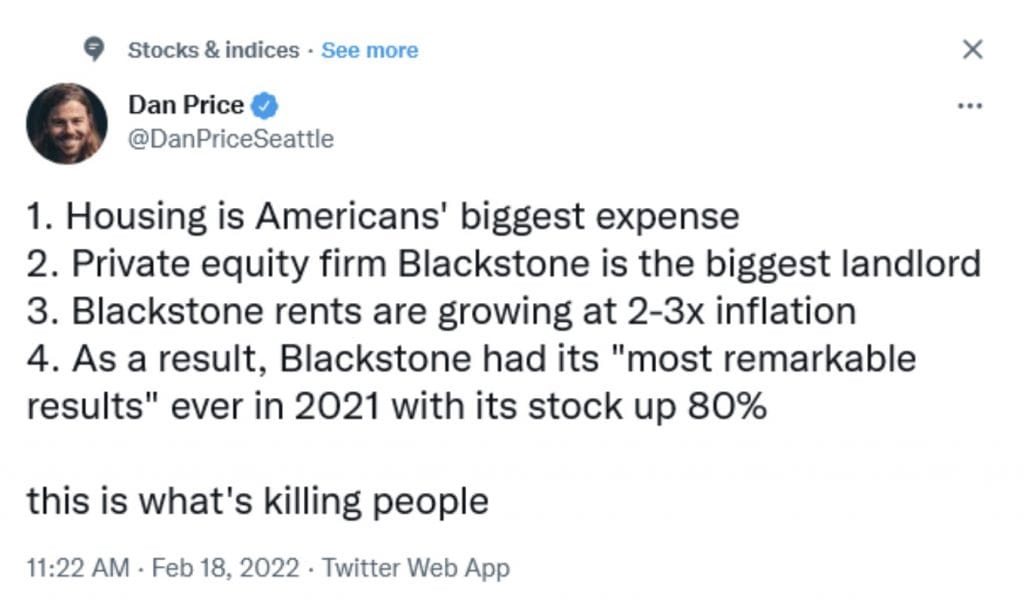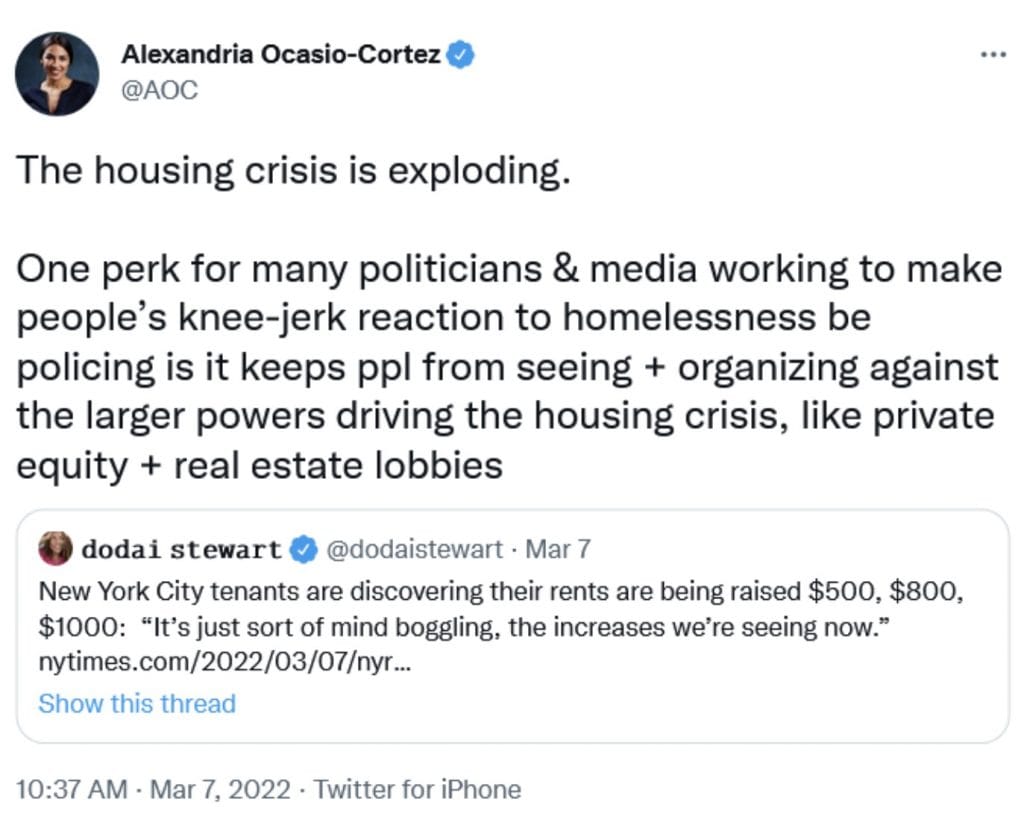Housing
The ability to purchase a house or afford an apartment has become a real problem for many Americans, especially in California. Since wages are not rising at the same rate as rents or housing prices are, housing expenses are taking up a larger and larger portion of people’s income or forcing creative solutions to housing.
The “American Dream” of getting a job, buying a house, and starting a family (in that order) is no longer a realistic option for many of today’s youth. Owning a house is considered an important part of building personal or family wealth, but the rate of home ownership has dropped. This removes one key way to build wealth and stability.
If we address this on a surface level, you might say housing prices need to come down or wages need to go up, or that we need more housing supply.
However, part of our goal at WEAll CA is to address the deeper underlying causes of complex problems, which requires systemic thinking. What are some of the hidden factors affecting housing and other economic issues? How is affordable housing connected to private banking, speculative finance, or the dominance of multinational conglomerates? Our hope is that looking at it from a whole system oriented approach will spark innovative thinking that creates better and longer term solutions.
Let’s begin with the mortgage crisis of 2008. A large percentage of homeowners lost their home. Investors bought those homes and some were sold to new individual homeowners, but a larger portion of them were held and turned into rentals. The investment company Blackrock is the largest owner of Single Family Homes (SFH) and Commercial Real Estate. One estimate says that Blackrock owns 25% of American homes. (See article below)
Increasingly, condos and homes are also being turned into Airbnbs for additional revenue for wealthy investors, which in turn reduces the supply of available housing. Foreign investors are also creating demand for expensive condos that sit empty most of the year. (See Charles Vogl for more on why that happens)
At the same time, many people are living paycheck to paycheck. A big expense or a gap in work can see them lose their housing. We see this all the time as the number of people living in their cars or on the streets is rising.
This can’t be the system we wish for.
Solutions
Deciding that we are allowed to demand more for our society is how we start.
Deciding that this is a collective society-wide issue versus a failure of an individual is an important step to driving change in how we envision our future and address the challenges creatively. We also need to promote the mindset that our politics are intended to create the society we want, not simply keep the status quo.
With that in mind, here are some ideas already circulating and we hope that we can come together to find even better ones that drive results!
Deciding what the basic safety net each citizen can expect is one way to address this. See our page on Safety Net Expansion
We also hold assumptions about land ownership as an individual (or corporate) purchase that are being challenged.
For example, groups are collectively purchasing land or buildings. This can reduce the financial pressure on individuals and at the same time, create a strong sense of community, shared destiny and social cohesion.
An offshoot of this is Intentional Communities. These communities add in additional practices to ensure that the members share common values and goals.
Communities are also using Commons (see topic here) or Community Land Trusts as alternative ownerships for the land.
City planners are also looking at how to create more affordable housing through traditional purchase or rental units. Since space is a big part of the challenge in dense areas, figuring out how to use space better and still keep a pleasing aesthetic is one approach. Communities are experimenting with concepts such as Middle Housing, 5 Over 1s, Tiny Homes or Additional Dwelling Units (ADUs) in people’s backyards.
Resources
- Next City article on Norfolk, CT giving out free home blueprints
- Next City has a section on Equity in Housing on Next City
- Next System Podcast episode on Homes Guarantee
- Next System Podcast episode on Community Land and Homes
- Jake Gotta on 5 over 1s on Twitter
- Ownership Matters Podcast Episode with Rana Foroohar
- Washington Post article Investors bought a record share of homes in 2021
- NY Times article on Blackstone’s Real Estate Holdings
- Smithsonian article on the origins of structural racism in housing
- Santa Monica Beach Housing Commons https://www.samobeachcommons.com/patch-vision
- Build Healthy Places Network Case Study
Partners
- LIFT Economy https://www.lifteconomy.com/
- Missing Middle Housing https://missingmiddlehousing.com/ Daniel Parolek
- Resident Owned Communities https://rocusa.org/
- Foundation for Intentional Communities https://www.ic.org/
- Build Healthy Places Network https://buildhealthyplaces.org/
- Courage to Change PAC – Recommended by AOC – identifies pro housing candidates who take a pledge to not take contributions from Private Equity


